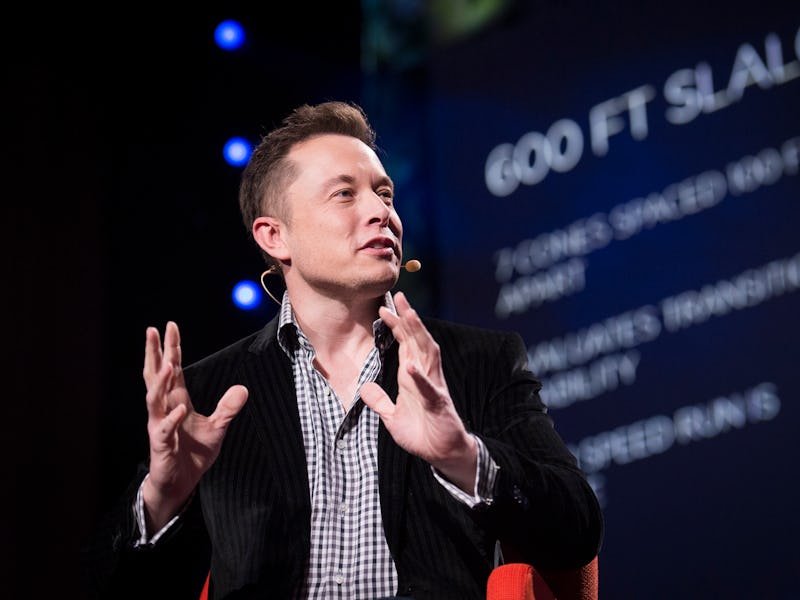Elon Musk Says Getting in a Car Will Be Like Getting in an Elevator

Elon Musk has suggested that full autonomy in Tesla vehicles could require a computer upgrade, which is probably bad news for anybody who currently owns one of the electric cars and was hoping for a fast-and-easy, downloadable software update. But it’s all part of the growing pains associated with emerging technology.
At the World Government Summit on Monday in Dubai, the Tesla CEO said that while Tesla models built since October have the sensors to power autonomous driving — which will be enabled through a future software update — it’s possible the computer will also need to be upgraded to support the added feature.
“Tesla cars that are made today have the sensor system that is necessary for full autonomy, and we think probably enough computer power to be safer than a person,” Musk said. “So, mostly it’s just a question of uploading the software. And if it turns out that the computer power, that more computer power is needed, we can easily upgrade the computer.”
The news may slightly disappoint Tesla owners hoping that a software download could enable cross-country autonomous road trips by the end of this year (full autonomy is predicted by the end of 2017). Musk did appear confident that the currently-shipping Teslas would work with full autonomy, already possessing the sensors needed for capturing the data in the first place. Depending on how the hardware portion of the upgrade process is structured, it could remain a relatively pain-free experience.
Current Teslas use Nvidia Drive PX 2, a computing platform designed specifically for autonomous driving. However, Nvidia states that multiple PX 2s can work in parallel for full autonomy, suggesting that the chip maker does not believe a single platform will provide the necessary power.
This is the processor that will help your car drive by itself: the Nvidia Drive PX 2.
Musk also said that in 10 years, it will be unusual for a new car to not come with full autonomous driving. It’s a bold claim, considering that many manufacturers like Volkswagen and Toyota predict small tests of nearly-full autonomous cars will start in around four years’ time.
But even if autonomy hits the mainstream in a decade, it will take longer for autonomous cars to become commonplace. Musk claimed that it would take around 20 years before self-driving cars have a major impact on society and the jobs market. That’s based on some industry trends: There are around two billion cars in the world, the industry produces 100 million cars every year, and one car lasts around 20 to 25 years before getting scrapped.
Musk compared the coming shift to how elevators work. Where before, an attendant would operate the machine to take you to the correct floor, users now get in, press the right button, and the machine does all the work.
“Getting in a car will be like getting in an elevator,” Musk said. “You just tell it where you wanna go, and it takes you there, with extreme levels of safety, and that’ll be all.”
Watch Musk speaking in the video below (starts around 27 minutes in):